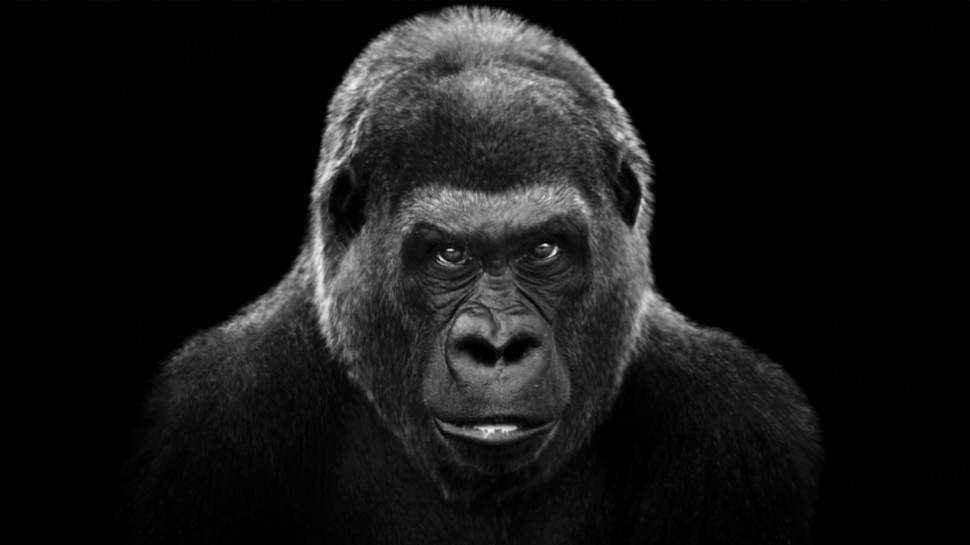
Visitors
US, 2013, DCP, black & white, 87 min.
After Naqoyqatsi, Reggio didn’t finish a new feature until Visitors. These substantial gaps in time are necessitated in part by the filmmaker’s commitment to making technically advanced films for large-scale theatrical exhibition—money for these sorts of projects is not easy to come by—and presumably by the meditative sensibility that seems to infuse their films. Visitors, like Reggio’s earlier features, was developed in collaboration with composer Philip Glass, but while it sometimes evokes the Qatsi Trilogy, it is distinct both formally (Visitors was shot in elegant black-and-white on 3K and 5K high-definition video and released in 4K) and in terms of its subject matter: Reggio’s focus is on portraits of individuals, nearly all of them in close-up, interspersed with panoramic imagery filmed in areas of Louisiana that had been, five years earlier, devastated by Katrina.
Reggio’s black-and-white close-ups in Visitors evoke Warhol’s Screen Tests of 1964‒66, in their composition, as well as in their meditative pace—though the kinds of gaze that interest Reggio are quite different from the gazes of the Factory visitors. Visitors seems part of a contemporary revival of interest in the cinematic portrait, shared by filmmakers such as Susana de Sousa Dias (48 [2009]) and by Stephanie Spray and Pacho Velez (Manakamana [2013]). The experience of looking at Reggio’s stunning imagery within the context created by Glass’s elegant composition is akin to the powerful experiences enjoyed by the original audiences for the Cinématographe, for nineteenth century moving and still panoramas, and for Louis Daguerre’s Diorama shows. – Adapted from Avant-Doc: Intersections of Documentary and Avant-Garde Cinema (2014) by Scott MacDonald
While director of Fabrica, Benetton's communications research center, Reggio collaborated again with composer Philip Glass when making this fascinating document of children watching television.













